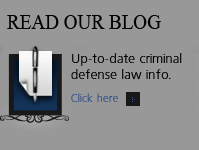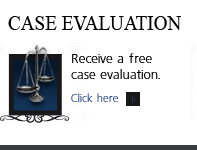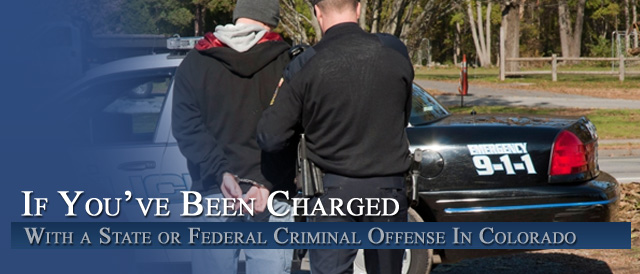

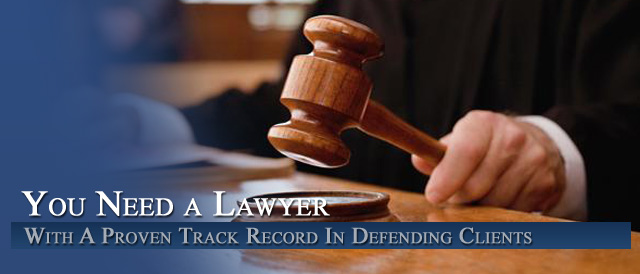
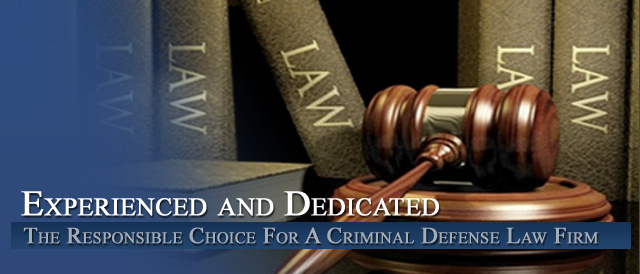
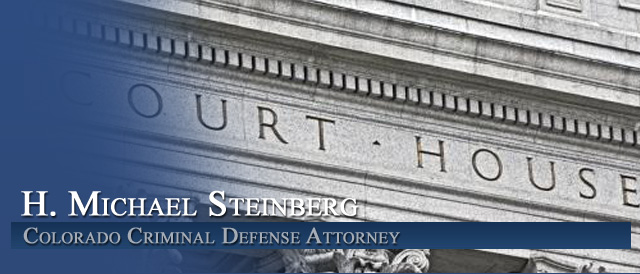
Perjury Crimes Laws, Defenses and Issues In Colorado
Colorado Perjury Defense Lawyer H. Michael Steinberg
Introduction – Perjury is one of the most complex crimes to prosecute, to defend and to understand. Colorado Law contains three different perjury statutes. This article attempts tp explain this misunderstood and very infrequently used crime. Federal perjury statutes are also addressed below.
What Are the Three Crimes of Perjury In Colorado?
Perjury in the first degree (18-8-502)
Perjury in the second degree (18-18-503)
False swearing (18-8-504)
Perjury in the first degree (18-8-502)
1. A person commits perjury in the first degree if in any official proceeding he knowingly makes a materially false statement, which he does not believe to be true, under an oath required or authorized by law.
2. Knowledge of the materiality of the statement is not an element of this crime, and the defendant’s mistaken belief that his statement was not material is not a defense, although it may be considered by the court in imposing sentence.
3. Perjury in the first degree is a class 4 felony.
Perjury in the second degree (18-8-503)
1. A person commits perjury in the second degree if, other than in an official proceeding, with an intent to mislead a public servant in the performance of his duty, he makes a materially false statement, which he does not believe to be true, under an oath required or authorized by law.
2. Perjury in the second degree is a class 1 misdemeanor
False swearing (18-8-504)
(1) A person commits false swearing if he knowingly makes a materially false statement, other than those prohibited by sections 18-8-502 and 18-8-503, which he does not believe to be true, under an oath required or authorized by law.
(2) False swearing is a class 1 petty offense.
Can The Government Prove The Crime Of Perjury Against Me?
In order to establish that you committed Perjury In The First Degree under Colorado law, the prosecutor must prove the elements of the crime beyond a reasonable doubt.
He must prove the Defendant:
1. In any official proceeding
2. Knowingly makes a materially false statement
3. Which he does not believe to be true,
4. Under an oath required or authorized by law.
Note: The person making the statement need NOT know the “level of materiality” of the statement. This is NOT an element of this crime, and the defendant’s mistaken belief that the perjured statement was not material is not a defense, although it may be considered by the court in imposing sentence.
Let’s examine each of these elements more closely.
You made a deliberate or willful statement
If you intentionally make a statement (either verbally or in writing) that gets conveyed to another person with the intent that it be taken as true, you satisfy this requirement.2
This is an important fact — conveying your statement to another is a requirement of this element. Simply saying or writing something intended only for yourself will not subject you to this charge.
However, your silence can actually amount to a “statement” if you intended it to serve as a substitute for verbal or written expression.3
Examples of Perjury Under Colorado Law
A variety of situations may trigger a perjury charge.
Some examples include:
Intentionally providing and delivering false information on a driver’s license, loan, or other application that has a phrase reading something along the lines of “I declare under penalty of perjury that the above information is true and correct.”
Intentionally providing and delivering false information on a tax return, statement, or report that requires an oath, regardless of whether the oath was actually taken.
Testifying as to your opinion if you don’t honestly believe in the opinion about which you are testifying.
Knowingly and intentionally making a materially false statement in a police report that you, as a law enforcement officer, file with your agency.
Penalties, Punishment, and Sentencing for Perjury in Colorado
Perjury in the First Degree is a class 4 felony under Colorado Law. If convicted the presumptive sentence is two to six years in the Colorado Department of Corrections
Most likely the sentence would be formal probation, fines, and restitution (especially if the conduct involved providing false information in connection with an application for government aid), community or public service.
If you are convicted of perjury in the Second Degree, you will be sentenced to a maximum of 2 years in the county jail and a $5,000.00 fine.
Colorado Jury Instruction for Perjury:
In Colorado criminal cases – the jury is instructed on the elements of a charge of perjury as follows:
The defendant is charged [in count ___] with perjury. The statute defining this offense reads in pertinent part as follows:
a person is guilty of perjury if, in any official proceeding, (he/she) intentionally, (under oath / in an unsworn foreign declaration), (makes a false statement / swears, affirms or testifies falsely), to a material statement which (he/she) does not believe to be true.
For you to find the defendant guilty of this charge, the state must prove the following elements beyond a reasonable doubt:
Element 1 – Testimony at an official proceeding
The first element is that the testimony was given at an official proceeding (under oath / in an unsworn foreign declaration)1. An “official proceeding” is any proceeding held or that may be held before any legislative, judicial, administrative or other agency or official authorized to take evidence under oath, including any referee, hearing examiner, commissioner or notary or other person taking evidence in connection with any proceeding. The defendant must have, in the presence of an officer authorized to administer an oath, unequivocally taken upon (himself/herself) the obligation of an oath.
Element 2 – Intentionally made false statement
The second element is that the defendant intentionally (made a false statement / swore, affirmed, or testified falsely) knowing or believing the statement to be false. The testimony must have been intentionally and deliberately given falsely and not through inadvertence or by mistake; that is, it was the defendant’s specific intent to deceive, and the defendant made the statements knowing or believing that they were false.
The state must prove that the defendant made a statement that was untrue in fact and that the defendant believed that it was false.
The truth or falsity of the defendant’s testimony cannot be proved solely on the basis of the uncorroborated testimony of a single witness, even if you find that witness’s testimony credible. Rather, it requires corroborated proof through independent and material facts and circumstances supplementing the testimony of the single witness. The corroborative testimony must be of such a character that, when taken in connection with all the other testimony, the falsity of the testimony is established beyond a reasonable doubt.
Element 3 – Material to the proceedings
The third element is that the statement made by the defendant was a statement material to the proceedings. The test of materiality is whether the false testimony was capable of influencing or had the potential to influence the fact finder in deciding the issues.3
Affirmative Defense – Coercion
The statute defining this offense also defines an affirmative defense, which the defendant has raised.
The defendant claims that (he/she) was coerced into giving the false testimony. Coercion has two elements.
In summary, the state must prove beyond a reasonable doubt that:
1) the defendant gave testimony at an official proceeding (under oath / in an unsworn foreign declaration),
2) the defendant intentionally gave false testimony,
and
3) the statement was material to the proceedings.
(If defendant has not raised the affirmative defense:) If you unanimously find that the state has proved beyond a reasonable doubt each of the elements of the crime of perjury, then you shall find the defendant guilty. On the other hand, if you unanimously find that the state has failed to prove beyond a reasonable doubt any of the elements, you shall then find the defendant not guilty.
(If defendant has raised the affirmative defense:) If you unanimously find that the state has failed to prove beyond a reasonable doubt any of the elements of the crime of perjury, you shall then find the defendant not guilty and not consider the defendant’s affirmative defense.
If you unanimously find that the state has proved beyond a reasonable doubt each of the elements, then you shall consider the defendant’s affirmative defense. If you unanimously find that the defendant has proved (his/her) defense by a preponderance of the evidence, then you shall find the defendant not guilty. If you unanimously find that the defendant has not proved (his/her) affirmative defense by a preponderance of the evidence, then you shall find the defendant guilty.
Are There Any Defenses to a Colorado Perjury Charge?
There are several defenses to a perjury charge:
Mistake or Misunderstanding
If, at the time you made your statement, you honestly or justifiably believed it was true, you can’t be convicted of this offense…even if it turned out to be a false statement. This is because you wouldn’t be “willfully” making a false statement, one of the essential elements of a perjury charge.
Despite having given inaccurate testimony, you would not be liable under Colorado perjury law. A mistaken belief (even if false) cannot sustain a perjury conviction.
Based on the same principal, if you misunderstood a direction, question, or other instruction that caused you to make the alleged false statement, you would be entitled to an acquittal of this offense.
Therefore, if you didn’t intend to make a false statement, you are not guilty of perjury. Period.
Insufficient Evidence
Another person’s testimony that conflicts with yours is insufficient, in-and-of itself, to support a perjury conviction. In order to prove your guilt, the prosecutor must offer corroborating evidence to prove that your statement was, in fact, false.
However, if a jury believes, based on your own conflicting testimony, that one version of your testimony was false, no further corroboration is necessary.
The Perjury Trap
The perjury trap is a form of entrapment defense, and thus must be affirmatively proven by the defendant. The defense is rarely proven, even though the claim is relatively common when grand jury testimony gives rise to perjury charges. (See Gershman, The Perjury Trap, 129 U. Pa. L. Rev. 624 (1981)).
The defense requires that the defendant show the false answer was illegally procured by the government. Thus, when the grand jury is attempting to obtain useful information in furtherance of its investigation, the perjury trap doctrine does not apply
No Subornation of Perjury Crime in Colorado
Colorado does NOT Have a Subornation of Perjury Statute
Other States and the Federal government have Subornation of Perjury Laws – Not Colorado
Typically Subornation of Perjury has the following elements:
Willfully convincing or persuading someone else to commit perjury, and perjury is in fact committed.
In order to prove that you committed subornation of perjury, the prosecutor must prove that the Defendant convinced someone else to testify falsely and that perjury was, in fact, committed.
Perjury is a fairly uncomplicated crime and as such perjury cases can be defended. It is up to the prosecuting agency to prove that statement made or documents signed were done so with specific intent to perjure. A person could feasibly contend that they believed that the testimony given and or documents signed were to the best of their knowledge truthful and forthright at the time testimony or signatures were given. If the person is on the stand, they can still recant or change their testimony while they are under oath and will not be charged.
Other Articles of Interest:
- Tactics Defenses and Strategy
- 002. COLORADO CRIMINAL CODE – OFFENSES AGAINST PERSONS – HOMICIDES
- Consent Defense In Colorado Sex Crimes Trials – What It All Means
- White Collar Crimes
- Colorado White Collar Crimes

